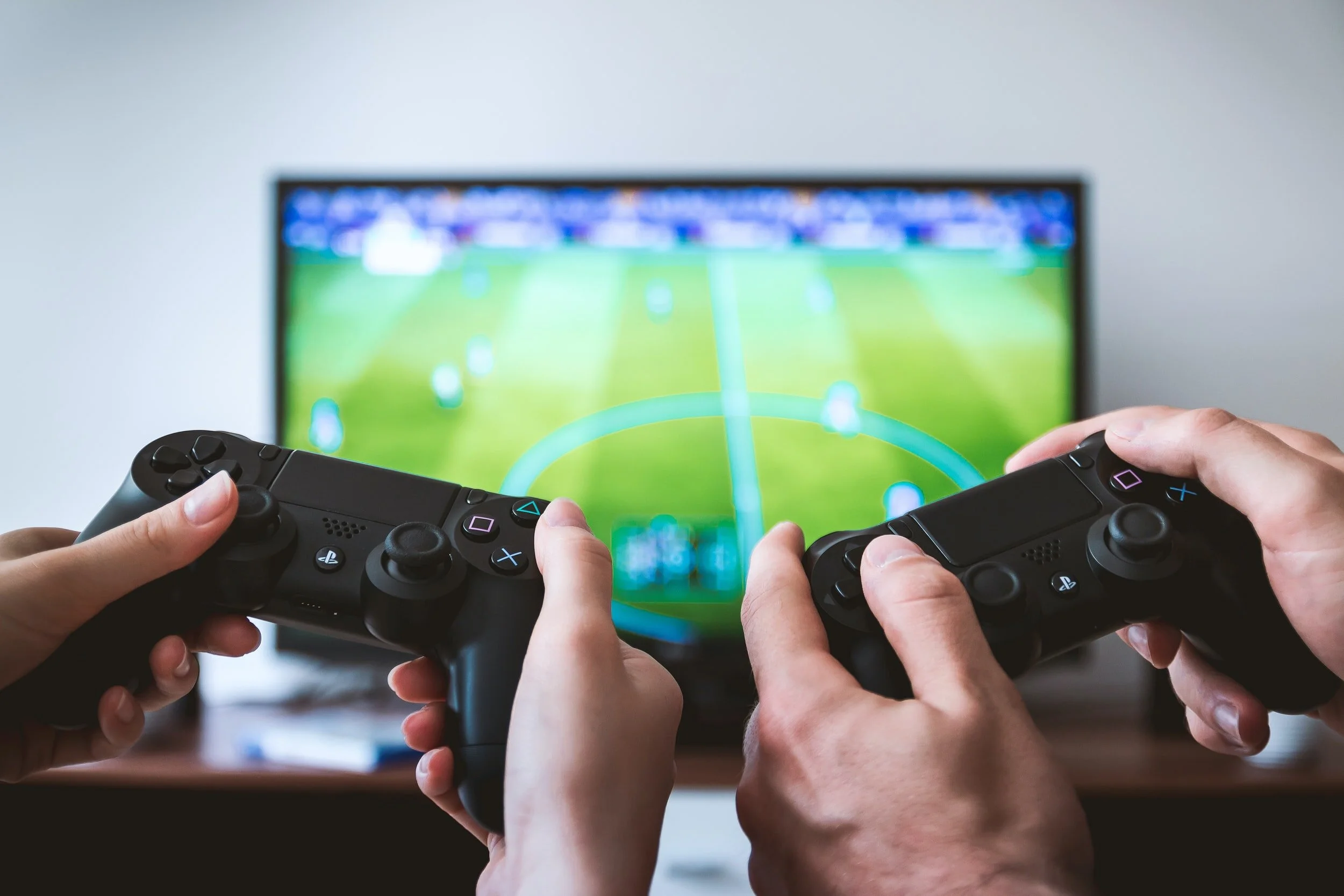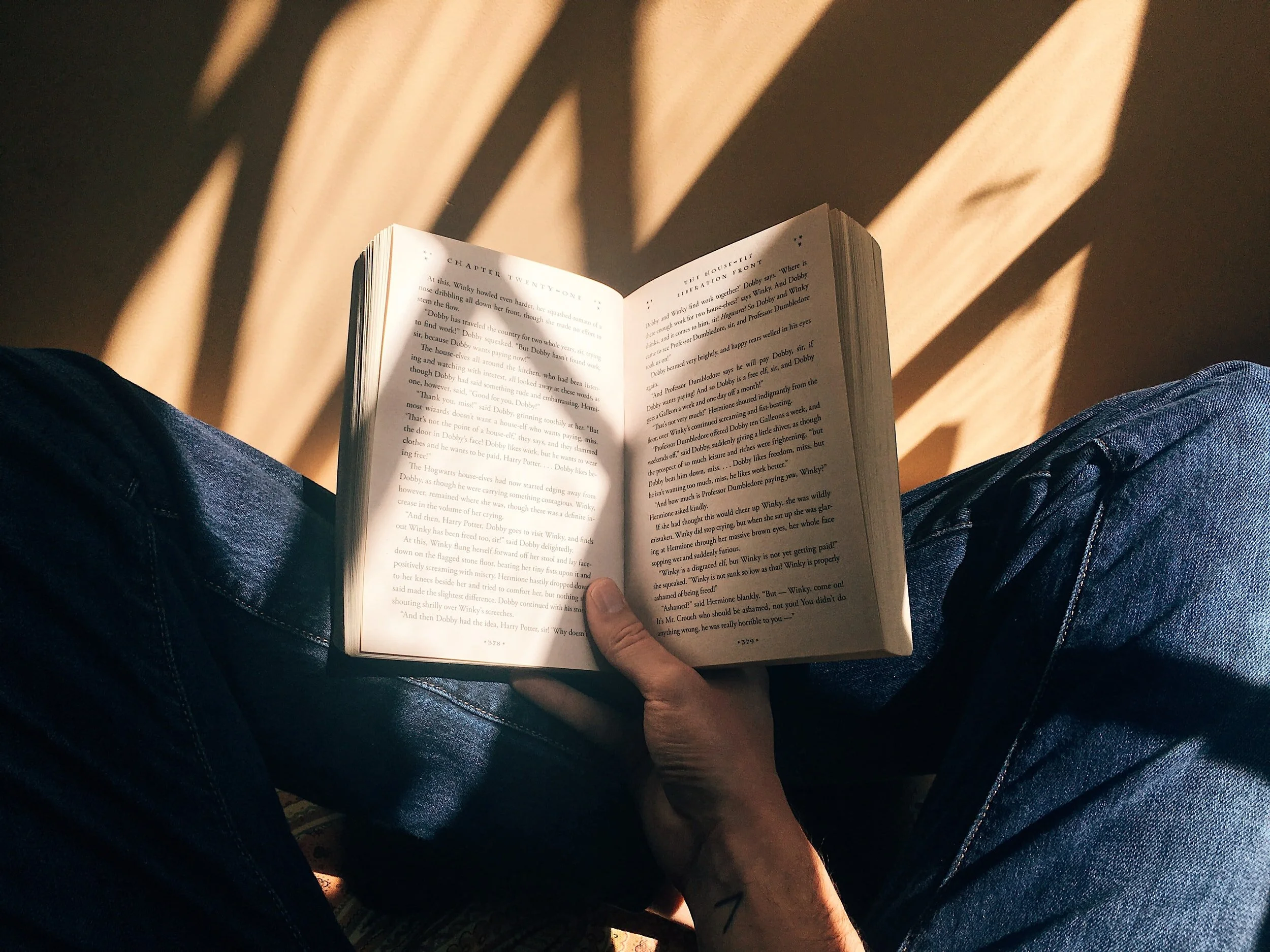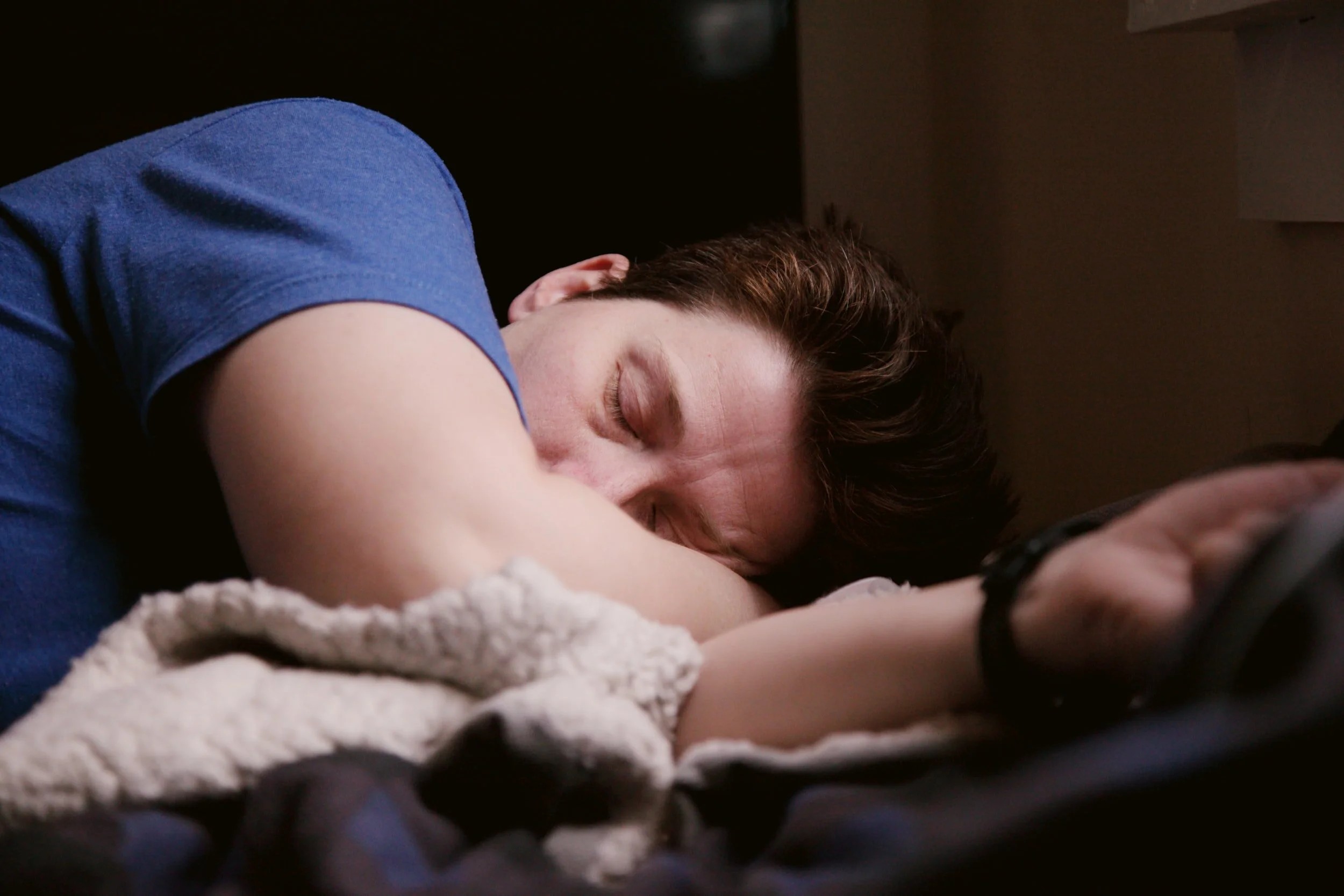
Sleep
Sleep is primarily for the brain. It allows the brain to recover and turns information into memory. Without a good night’s sleep your brain finds it difficult to do this.
What is Sleep?
Sleep is often seen as a time when we our bodies are inactive. In fact, the opposite is true. When we sleep our bodies go through complex processes. During sleep our muscles relax, and our bodies build and repair.
Sleep is primarily for the brain. It allows the brain to recover and turns information into memory. Without a good night’s sleep your brain finds it difficult to do this.
Think of sleep like pressing the save button on your computer. While you sleep your brain is not only saving memories it is strengthening them, reorganising them, picking out emotional details and helping us to develop insight and creative ideas.
Without sleep we: cannot concentrate, remember, have poorer mental health, get sick more often and are more likely to have accidents.
Sleep expert Matthew Walker breaks down the many effects of sleep deprivation on your brain and body. Video from TechInsider
Sleep helps to improve your mood and feelings of wellness, organise, and strengthen memories, improve immune system, improve posture, helps muscles to build, grow and repair, increase energy levels, improve the skin, and helps you look healthy, helps to manage weight.

Why can’t I sleep?
-

Stress and Anxiety
Stress and Anxiety go hand in hand with sleep. Not getting enough sleep increases feelings of anxiety and anxiety itself can make it difficult to fall and stay asleep.
-

Using your phone/ laptop or tablet before bed
The light from your device impacts on the brains ability to recognise signs for sleep keeping you alert and awake. Blue light effects the melatonin production in the brain and can mess with hormones. Low melatonin levels are linked to increased likelihood of developing depression.
-

To much caffeine
Caffeine is a stimulant which means it will boost your energy levels temporarily. Drinks containing caffeine before bed will make it really difficult for you to relax and to fall asleep
-

Room not dark enough
Sleeping in a light room makes it difficult for the signals your brain needs that it is time to sleep. It turns out your brain can misinterpret even such dim lights and wonder if it should wake you up.
-

Worrying and overthinking
Trying to sleep when your mind is busy worrying and overthinking can make going to sleep difficult as it is hard for your mind to shut down and for your brain to recognise it is time to sleep
-

Gaming just before bed
Gaming just before bed like using your phone keeps your brain active. Add the light from your screen and you have a recipe for a difficult time getting off to sleep.
-

No sleep routine
Not having a good routine before bed makes it difficult for your brain to recognise the signs that it is time to wind down and to sleep
Ways to get a better night sleep
Want to not only fall asleep quickly but also stay asleep longer? Sleep scientist Matt Walker explains how your room temperature, lighting and other easy-to-fix factors can set the stage for a better night's rest.
Want to not only fall asleep quickly but also stay asleep longer? Sleep scientist Matt Walker explains how your room temperature, lighting and other easy-to-fix factors can set the stage for a better night's rest.
Sleeping with Science, a TED series, uncovers the facts and secrets behind our nightly slumber.
6 Steps to help you get a good night’s sleep
STEP1: Wind down
Winding down is really important for helping your mind and body prepare for a good nights sleep.
Stop working, playing etc 30 mins to an hour before bed to allow you mind to begin to relax.
ou can: take a bath or shower, read a book or magazine, listen to some calming music.
It’s important to try not to do things that will cause your mind to power up again.
STEP 2: Exercise
Exercise does not have to be hours in a gym or running for hours on end. 20-30 minutes exercise per day has shown to increase sleep time by over 40 minutes and reduce the time it takes to fall asleep by 12 minutes.
Exercise is also possibly the best way to improve your mood. So if you’re feeling low exercise can dramatically improve how you are feeling, increase your energy levels etc.
STEP 3: Write your thoughts down
We have all been there you prepare well for be you turn the light off and your brain goes into overdrive, running through thoughts and worries. Keep some paper and a pen next to you bed. If you find your mind is racing, write or draw it on the paper so you don’t forget it helps to make worries and problems smaller too.
STEP 4: Admit you need sleep
As much as you really want to watch the next episode of something on Netflix or finish the stage on a game it’s important to listen to your body and accept you need to sleep.
Getting a good night’s sleep will help your brain sort the information of the day, repair and recover your body and you will feel better the next day. Those distractions will still be there tomorrow, and you will most likely be able to do them better with a refreshed brain.
STEP 5: Turn off Technology
You will be tired and when you are tired your brain doesn’t function properly, you’ll be likely drawn into posting something you may regret the next day.
The light from your device impacts on the brains ability to recognise signs for sleep keeping you alert and awake. Blue light effects the melatonin production in the brain and can mess with hormones. Low melatonin levels are linked to increased likelihood of developing depression.
STEP 6: Darken your room
You sleep better in the dark. If your eyelids flutter open as you move from one stage of sleep to another, even streetlights or a full moon can wake you up. You can also get rid of the clock radios with lighted displays. It turns out your brain can misinterpret even such dim lights and wonder if it should wake you up.
Why do we get nightmares?
Everyone is occasionally effected by nightmares or bad dreams. For some young people nightmares can become a persistent and worrying issue for them and they may not always wish to talk about it due to embarrassment.
Almost everyone has nightmares at some point in their life, so what's the true cause of them?
What can you do?
Everyone has different experiences of nightmares and dreams, some people don't often remember them and others have them almost every night.
Dreams and therefore nightmares are a normal part of our sleep pattern.
We see, hear, taste, smell, touch and think about millions of things everyday and when we go to sleep our brains organise them; things to remember, things we don't need to worry about, important things, funny things or things we feel scared of. This organising can sometimes result in dreams and or if we are worried, anxious or scared of something it could turn into a nightmare.
The odd nightmare is scary at the time and we might even carry the feeling of being worried or scared for a few hours after we have woken up.
Nightmares can be terrifyingly real, they can leave us feeling scared, sweating, confused, scared to go back to sleep, or even do things to keep ourselves awake so we don't have them again.
If a young person is having lots of nightmares or are frightened of going to sleep try and encourage them to talk to someone about it. A relative, friend, youth worker, trusted adult, teacher could help.
Once young people being talking about things that are happening, or the things that are worrying them they may find they begin to have fewer nightmares.
Your nightmares could be your brains way of telling you to get some help.
The one stop shop for all you need to know about sleep.
If you’re looking for advice on how to sleep better, would like tips on tweaking your routine or help to understand the science behind your sleep patterns, you’ll find it all there.
Teen Sleep Hub
Further support
MySleep
MySleep is a series of practical online resources that were developed by our Wirral Sleep Service to support families and professionals in encouraging good sleeping habits amongst children.
Health Services in Schools Youth Workers
HSIS Youth Workers support young people in Wirral Secondary Schools, Wirral Sixth Form College and Wirral Met College.
Each school/college has a designated HSIS Youth Worker that provides young people with an opportunity to access confidential support on any issues which may be affecting them.
We provide support to young people on a wide range of issues and topics such as: building resilience, reducing risks, healthy relationships, sexual Health (including issuing condoms in some schools) drugs, alcohol, emotional health, Stress and Anxiety.
To find your youth worker visit their page.
Response Counselling Service
The Response counselling service works with young people aged 13-18. It is a free confidential service working with young people with moderate to severe issues which include suicide ideation, self harming, depression, high levels of anxiety bereavement etc.
We also work with the Response Alcohol and drugs team as many referral come for both services. Our work is separate from but alongside CAMHS, sharing risk between the 2 services. The referral system is usually by filling in a referral form and sending it by email unless it’s a parent referring and we can take it over the phone. We can only accept referral if it’s with the consent of the young person.
If a young person mentioned suicide then it’s fine for a worker to talk with them but it does need referring on, talking about suicide will never increase the risk of a young person taking their own life.
Self harm can include many ways , it is a physical way of dealing with an emotion. Again it needs referring on as stopping a young person from harming themselves isn’t going to deal with why they are having to do it.
Response coordinator 01516664123/3783 email barrymarsden@wirral.gov.uk
Emergency-ring 999
Present at Arrowe Park Hospital Liaison and psychiatry.
24 hour mental health line 03003033972 any age.
CAMHS advice and duty line 0151 488 8453
BRANCH
Branch is an online mental wellbeing hub for children and young people in Wirral, from 0 all the way to 18 (and up to 25 with additional needs). It doesn’t deliver services directly – it’s more of a guide, helping people to find the best tools and local support.
It can be used for any child or young person, no matter how big or small their worries feel. It’s packed with tips to help them feel better and, when they need a bit of extra support, gives simple routes into local services.
Branch doesn’t offer crisis support but has information on where to get help in an emergency.
Visit www.branch-wirral.co.uk
Open Door Centre
If you are aged 17 - 30, you can become a member and then access as many of our services as you like, including Creative Therapeutic Support if you are feeling down, low, stressed or anxious, numerous different activities within music and the arts, unique training and volunteering opportunities and much more. Membership is free, with no waiting lists.
NHS 111 mental health option - for urgent support
24/7 All age crisis line
Please call NHS 111, select the mental health option and dedicated local staff will support you to access the help you need. The phone line is open 24 hours a day, seven days a week and is open to people of all ages, including children and young people. Parents and carers can also call the crisis line if they are worried about a young person who is experiencing a mental health crisis.
This is a new service and to ease the transition - those people who call our old mental health crisis line number, 0800 145 6485 will still get through to our team.
Action for Children (Counselling)
Best start in life
We know how important the early years are - and we’re here to help. From parenting advice to education and early intervention, we focus on improving children’s life chances.
Good mental health
Everyone has ups and downs in life. Our mental and emotional well-being experts work with families and schools to make sure children and parents feel able to cope with challenges when they arise.
A safe and loving home
We make sure more children feel part of a family that cares for them. We find homes for those without, protect children who have been abused or neglected, and help ensure young carers don’t miss out on a childhood.
KOOTH (Online counselling)
Free, safe and anonymous online support for young people
Monday – Friday 12pm – 10pm
Saturday – Sunday 6pm – 10pm
SHOUT
Shout is an affiliate of Crisis Text Line® in the UK that provides free, confidential support, 24/7 via text. It’s the first free 24/7 texting service in the UK for anyone in crisis anytime, anywhere. Shout is available in England, Scotland, Wales, and Northern Ireland
Text SHOUT to 85258 in the UK to text with a trained Crisis Volunteer
or
Text BLUE to 85258 to get resources and sign posting information.
Every texter is connected with a real-life human being trained to bring people from a hot moment to a cool calm place through active listening and collaborative problem-solving. All of our Crisis Volunteers donate their time to helping people in crisis.
Anxiety UK
Provides information, support and advice for anyone struggling with anxiety.
Live chat service available.
Phone: 03444 775 774
Text: 07537 416 905
Email: support@anxietyuk.org.uk
Opening times: 9.30am-5.30pm, Monday-Friday
No Panic
Supports people struggling with panic attacks, obsessive compulsive disorder (OCD), phobias and other anxiety-related issues related - and provides support and information for their carers.
Offers a specialist youth helpline for people aged 13-20. The opening hours are 3pm - 6pm, Monday - Friday; 6pm - 8pm, Thursdays and Saturdays.
Call 01952 680835 for a recorded breathing exercise to help you through a panic attack (available 24/7).
Information about call costs here.
Phone: 0300 7729844
Phone: 0330 606 1174 (Youth helpline)
Email: sarah@nopanic.org.uk
Opening times: 10am - 10pm, 365 days a year
OCD Action
Offers support and information to anybody affected by obsessive compulsive disorder (OCD).
Website provides information and advice to help you access treatment.
Phone: 0300 636 5478
Email: support@ocdaction.org.uk
Email: youthhelpline@ocdaction.org.uk
Opening times: 9:30am - 8pm, Monday - Friday
The Mix
Offers support to anyone under 25 about anything that’s troubling them.
Email support available via their online contact form.
Free 1-2-1 webchat service available.
Free short-term counselling service available.
Phone: 0808 808 4994
Opening times: 4pm - 11pm, seven days a week
Childline
If you’re under 19 you can confidentially call, chat online or email about any problem big or small.
Sign up for a free Childline locker (real name or email address not needed) to use their free 1-2-1 counsellor chat and email support service.
Can provide a BSL interpreter if you are deaf or hearing-impaired.
Hosts online message boards where you can share your experiences, have fun and get support from other young people in similar situations.
Phone: 0800 1111
Opening times: 9am - midnight, 365 days a year
YoungMinds Crisis Messenger
Provides free, 24/7 text support for young people across the UK experiencing a mental health crisis.
All texts are answered by trained volunteers, with support from experienced clinical supervisors.
Texts are free from EE, O2, Vodafone, 3, Virgin Mobile, BT Mobile, GiffGaff, Tesco Mobile and Telecom Plus.
Texts can be anonymous, but if the volunteer believes you are at immediate risk of harm, they may share your details with people who can provide support.
Text: YM to 85258

